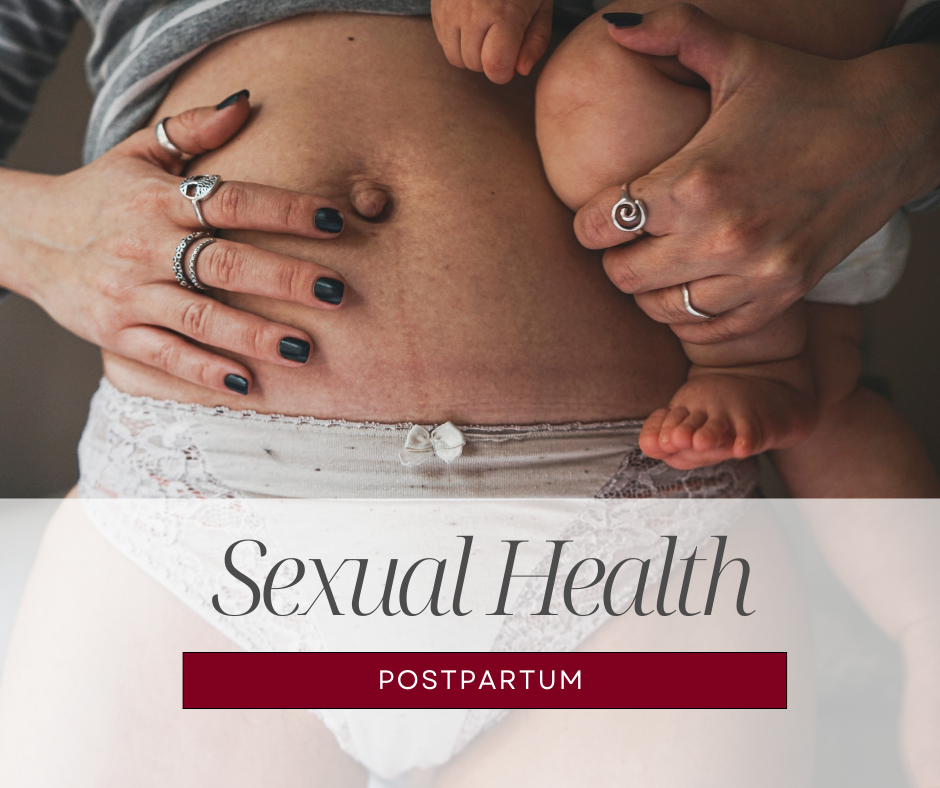Postpartum Sexual Health
The postpartum period, following the birth of a child, is a transformative time for new parents, marked by joy, love, and new responsibilities. Among the myriad adjustments, postpartum sexual health emerges as a vital aspect of a couple's well-being. Here, I explore some topics related to postpartum sexual health, offering insights and practical guidance to foster a healthy and fulfilling intimate life after childbirth.
Understanding Postpartum Sexual Health
Physical Changes: The postpartum period entails a series of physical adjustments, including healing of the perineum, uterine involution, and hormonal fluctuations. These changes can affect sexual comfort and desire.
Emotional Factors: New parents often experience a wide range of emotions, from profound love and joy to exhaustion and anxiety. Emotional well-being plays a significant role in postpartum sexual health.
Fatigue and Sleep Deprivation: Caring for a newborn is demanding, often involving sleepless nights and round-the-clock care. Fatigue can influence one's readiness for sexual activity.
Navigating Postpartum Sexual Health
Open Communication: Maintain open and honest communication with your partner. Discuss feelings, concerns, and expectations regarding postpartum intimacy. Ensure both partners feel heard and supported.
Physical Recovery: Prioritize the physical well-being of the birthing parent. Allow time for their body to heal, and respect their comfort levels and readiness for intimacy.
Emotional Support: Provide emotional support to each other. Acknowledge the emotional challenges that can accompany the postpartum period, and offer understanding and reassurance.
Medical Clearance: Await medical clearance from a healthcare provider, typically around six weeks postpartum, before resuming sexual activity. This ensures that the body has healed sufficiently.
Start Slowly: Begin with non-penetrative forms of physical intimacy, such as cuddling, kissing, and gentle touch. Gradually progress to sexual activity when both partners feel ready.
Vaginal Dryness: Breastfeeding and hormonal changes can lead to vaginal dryness. Use a water-based lubricant to alleviate discomfort during intercourse.
Low Libido: Changes in hormonal levels and fatigue stemming from recovering after childbirth and infant care can contribute to decreased libido. Be patient and explore ways to rekindle desire, such as scheduling intimate moments or trying new activities together.
Body Image Concerns: Many birthing parents experience changes in their bodies postpartum. Encourage open discussions about body image and work together to rebuild self-confidence.
Stress and Time Management: Balancing childcare, work, and household responsibilities can be challenging. Allocate time for intimacy and consider seeking support from friends or family to ease the load.
Birth Control: Discuss birth control options with your healthcare provider, as fertility can return even if menstruation has not resumed.
Nurturing postpartum sexual health is a vital component of a couple's well-being during this transformative time. Embrace the changes that parenthood brings, prioritize each other's emotional and physical needs, and work together to strengthen the intimate bond that defines a healthy and fulfilling relationship. By doing so, couples can navigate the postpartum period with resilience, mutual support, and the profound joy of parenthood.
If you’d like personalized support navigating the postpartum period, whether as an individual o as a couple, click here to request a session.
I am a PhD in Clinical Sexology candidate at Modern Sex Therapy Institutes and have a Master of Science in Educational Psychology. I work with individuals, couples, non-monogamous relationships, and groups in topics related to sexuality, emotional regulation, communication dynamics, and changing behaviors.


